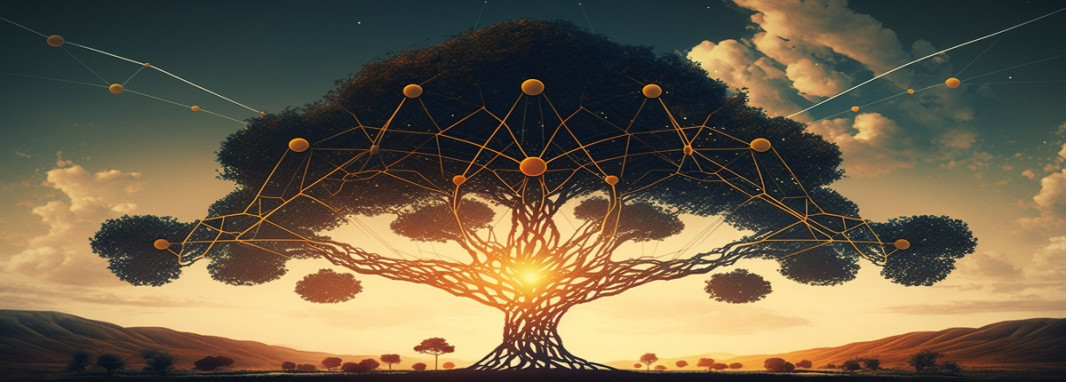Decentralized autonomous organizations (DAOs) are gaining popularity in the Web3 space as investors are beginning to explore investment opportunities in them.
Similar to bitcoin and DeFi, DAOs offer the possibility of significant returns on investment in the future.
Currently, there are over 216 DAOs with about 10 billion in AUM and around 2 million members across them.
Even big-name investors like Mark Cuban, Naval Ravikant, Peter Thiel, and Paradigm have invested in DAOs, recognizing their potential as "the ultimate combination of capitalism and progressivism."
Despite their potential, DAOs face various challenges that investors should consider before investing.
As DAOs serve various purposes that span beyond managing crypto protocols, including overseeing venture capitalist funds, facilitating social media platforms, supporting philanthropic efforts, and managing social clubs., each has unique risks and opportunities.
Therefore, investors should conduct thorough research and understand the risks associated with each DAO before making any investment decisions, especially for those with a long-term approach.
5 Challenges Faced by DAO
Adoption Challenges
DAOs issue tokens instead of traditional equity, and while token holders and issuers typically expect governance rights or economic returns from them, there is often no legal relationship between token holders and the DAOs.
This creates a risk for token holders as they may not have any legal protection or recourse in the event of disputes or legal issues.
Therefore, investors should carefully consider the potential risks and challenges associated with investing in DAOs and make informed decisions.
Legal Concerns
The legal structure of DAOs is a cause for concern as they often lack formal corporate structures with clear distinctions between the different roles of participants or explicit terms for liability protection.
Instead, governance token holders suggest actions for the DAO to take and vote on them. The lack of clarity on the legal form of DAOs creates significant risks for members, as the nature of their liability is unclear.
Individual Liability
There is confusion surrounding the personal responsibility of members in decentralized autonomous organizations (DAOs), especially when they disregard passed proposals.
This uncertainty hinders the expansion of DAOs beyond on-chain environments and raises concerns about integrating off-chain assets.
As the DAO ecosystem progresses, it's critical to address these issues to ensure the prosperity and endurance of these groups.
Tax Implications
The tax implications of DAOs remain unclear, and in most countries, they cannot file taxes the same way traditional business entities can or benefit from tax refunds associated with such entities.
It is not yet clear if DAOs will be taxed as distinct corporations or as pass-through vehicles. This lack of clarity means that DAO membership could be a direct tax liability for individuals investing in DAOs in many jurisdictions.
Currently, individuals are turning to crypto tax services as a means of managing tax obligations related to DAOs.
As the regulatory framework for DAOs continues to evolve, it will be important for investors to keep track of any tax implications and obligations associated with investing in these organizations.
Voting Concentration
Decentralized governance in DAOs heavily relies on the ownership of DAO tokens, which can lead to a group of investors accumulating significant shares of tokens and consequently gaining higher voting power based on the number of governance tokens they hold.
However, The accumulation of voting power in the hands of a few individuals raises concerns about the possibility of them supporting irrational proposals.
This undermines the concept that DAOs eradicate hierarchical issues entirely.
Wrapping Up
DAOs face several challenges that require careful consideration and resolution.
Adoption challenges and legal concerns, especially the lack of clarity on the legal form of DAOs, pose significant risks to members.
Additionally, the issue of individual liability, tax implications, and voting concentration also require attention.
Despite these challenges, DAOs remain an innovative and exciting way to participate in decentralized decision-making and economic systems.
Addressing these challenges will require collaboration and cooperation from all stakeholders, including investors, regulators, and developers, to ensure the long-term success of DAOs.
Looking to Develop a Blockchain-based Solution?
As a leading blockchain development company, we understand the challenges that decentralized autonomous organizations (DAOs) face and are committed to providing solutions that promote the growth and sustainability of these innovative economic systems using blockchain tech.
Our team of experts has extensive experience in developing blockchain-based solutions that address the challenges of adoption, legal concerns, individual liability, tax implications, and voting concentration, among others.






